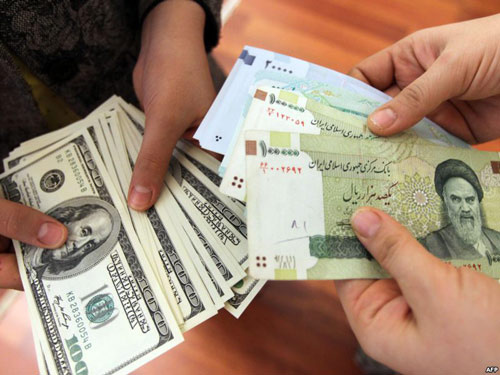Do Negotiations with the West Affect Iran’s economy?
Less Political Tension Leads to an Improved Economic Situation

Mehdi Taghavi: Recent fluctuations in the dollar exchange rate and gold prices are due to various reasons. When a country has problems with all of the world’s powers and these powers put pressure on this country with sanctions, it is seen that these sanctions make the people’s economic lives more difficult. When negotiations start, there is a feeling of optimism that problems will be solved and the economy will return to its previous state; that US sanctions and sanctions on the Central Bank will be removed; that import and export will be facilitated; and that if these hopes are fulfilled, the inflation rate will decrease. Therefore, this optimism causes people to become more optimistic about their own living situation. It is natural that people will therefore think that prices will also go down. If the price of the dollar is 500 tomans, the price of gold coins will not be what it is now. Or if the price of the dollar decreases, there will not be such enthusiasm to buy dollars in the hope of its price increasing. Hence, from a political perspective, the lessening of political differences with other countries can have a positive effect on the state of the economy.
ID: But it does not seem that the imposed sanctions that have put the economy in such a state will be removed or modified soon…
MT: In any case, if Iran normalizes its relations with powerful Western countries, it is clear that those countries will gradually remove the obstacles they have put up against Iran’s economy. If these problems are resolved, and even if a lack of resources still does exist for Iran, we will have a better chance of getting low-interest, short-term loans. The people should therefore not be hasty and expect problems to be solved in a very short period of time. However, the economic situation, which has been blocked by sanctions, will improve gradually.
ID: Has the economic factor been clearly influential on the fluctuations in gold prices and the dollar exchange rate?
MT: Yes. The increase in the dollar exchange rate was a result of the chaotic entry of dollars into the market. Some individuals observe that the price of the dollar has gone up as high as it could. If they keep their dollars and the price of the dollar decreases, they will lose money. Therefore, these individuals start to inject their dollars into the market. When this happens, the price practically goes down. The other point worth mentioning is that housing prices have started to increase. Some of these individuals might think that the housing market is more profitable than the currency and gold markets. In addition, the housing market has more security and less risk. These individuals transfer their investments in gold and currency to investments in the housing market. If the housing market gets a shock and prices go down, investments will return to the gold and currency sector.
However, a part of this economic atmosphere is a result of hope and optimism regarding the improvement of relations with the West, as I mentioned before, and part of it is due to the predictions of stockbrokers, as I mentioned above. They believe that gold prices and the price of the dollar have reached their peak and therefore have nowhere to go but down.
ID: In your opinion, can a positive outcome in negotiations lead to a return to the previous state for the dollar rate and gold prices?
MT: If we take a quick look at history, after the implementation of Mr. Hashemi’s economic adjustment policies as president, the price of the dollar had a sudden rise. This sudden rise was due to the economic adjustment policy. It seems that the implementation of the targeted subsidy plan has also given a shock to the market. If this shock weakens, the price of the dollar will possibly decrease. During Mr. Hashemi’s tenure as president, prices had a sudden rise, but they also went down at a reasonable rate. But prices did not return to their previous rates at that time. The dollar rate was almost cut in half at the end of the war. But there was an opposite turn during the Hashemi presidency and the price of the dollar almost doubled, and it has been rising more or less ever since.
During recent developments, the dollar rate in the free market reached more than 2000 tomans. However, we are currently observing a slight decrease and this shows that optimism concerning the future and developments in the investment market have been influential in this regard. We still hope that the dollar will return to its previous rate of 1000 tomans per dollar; because the higher the price of the dollar goes, the more expensive imported goods will be and the higher the inflation rate will go. Our national currency will also lose its value even more.
ID: Would you like to add anything to sum up our discussion?
MT: Many different factors currently influence the dollar rate of exchange and gold prices. In order to understand to what extent each factor influences the economy, they must be thoroughly studied in a research analysis of the economy. And even with this analysis, the only thing we might be able to say is how influential each factor has been in a certain period of time.

